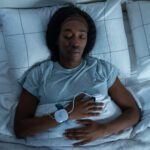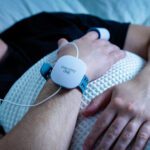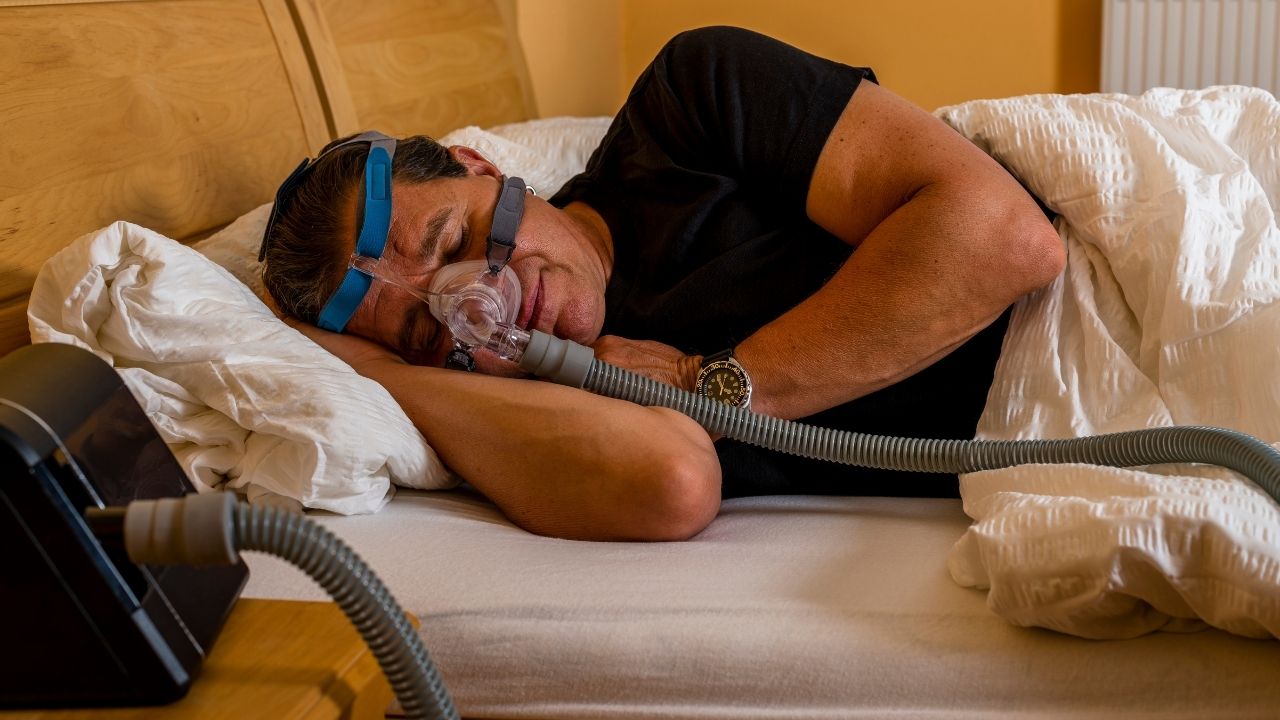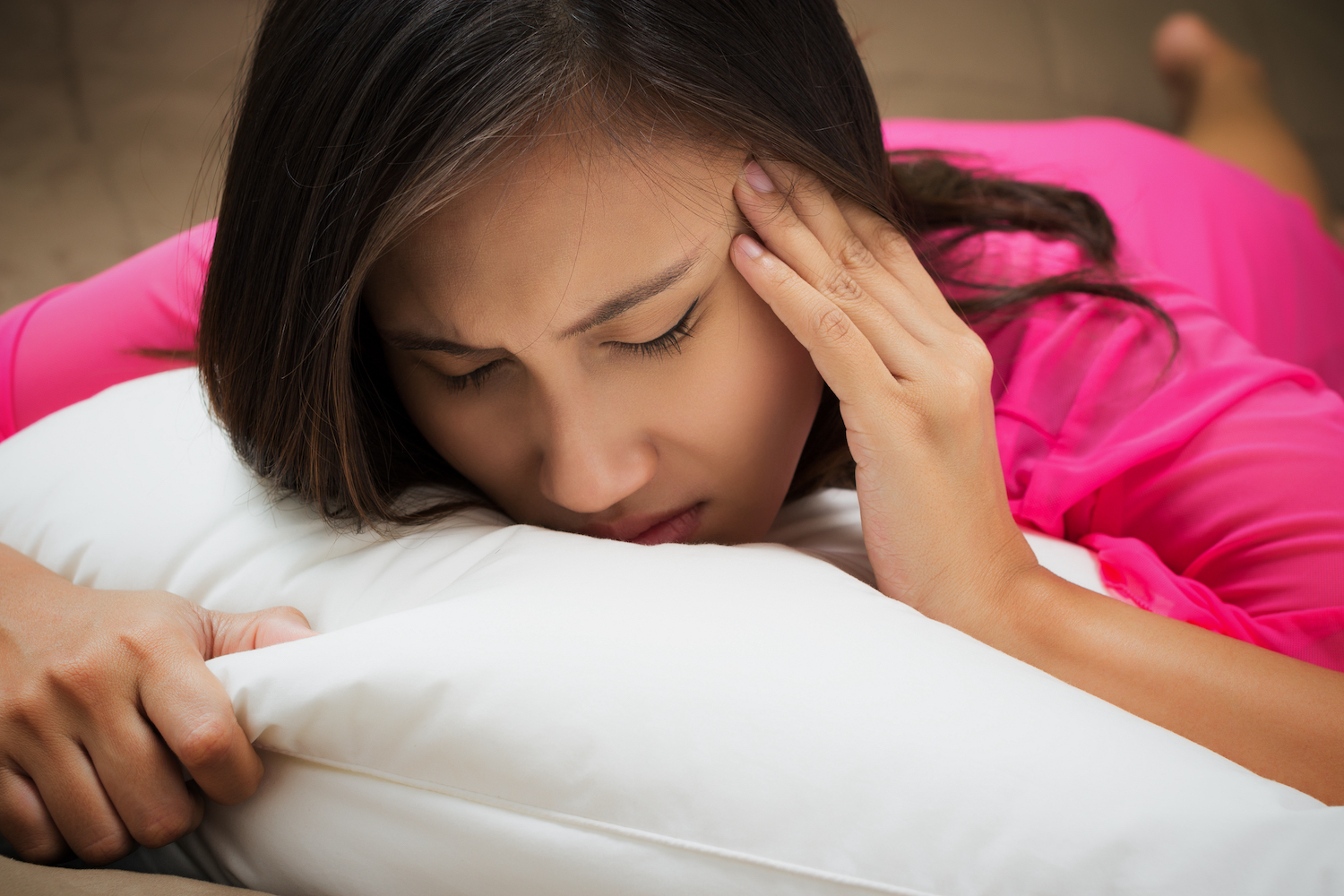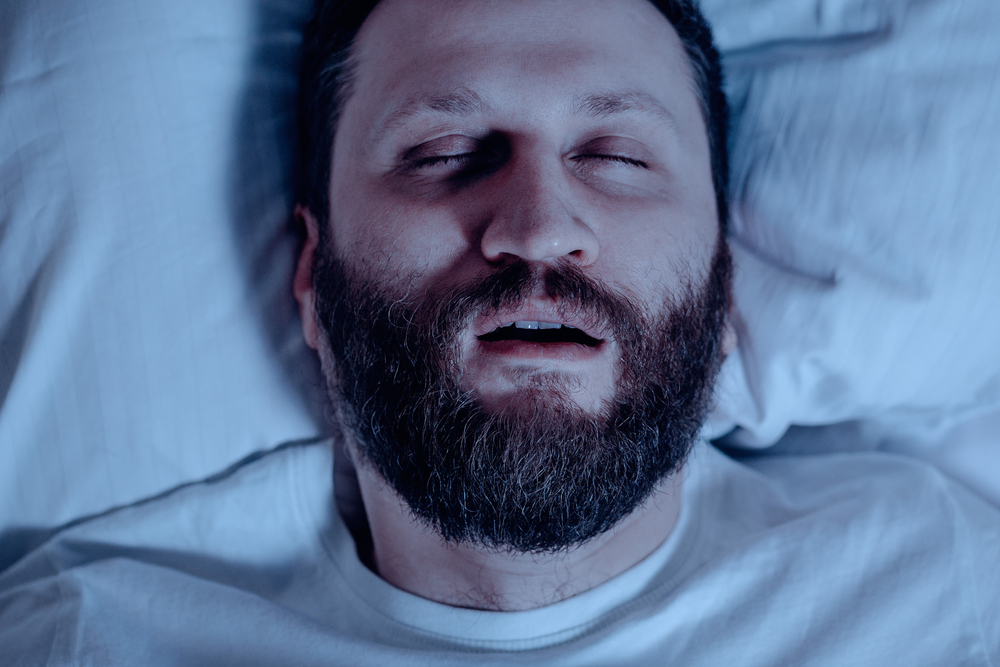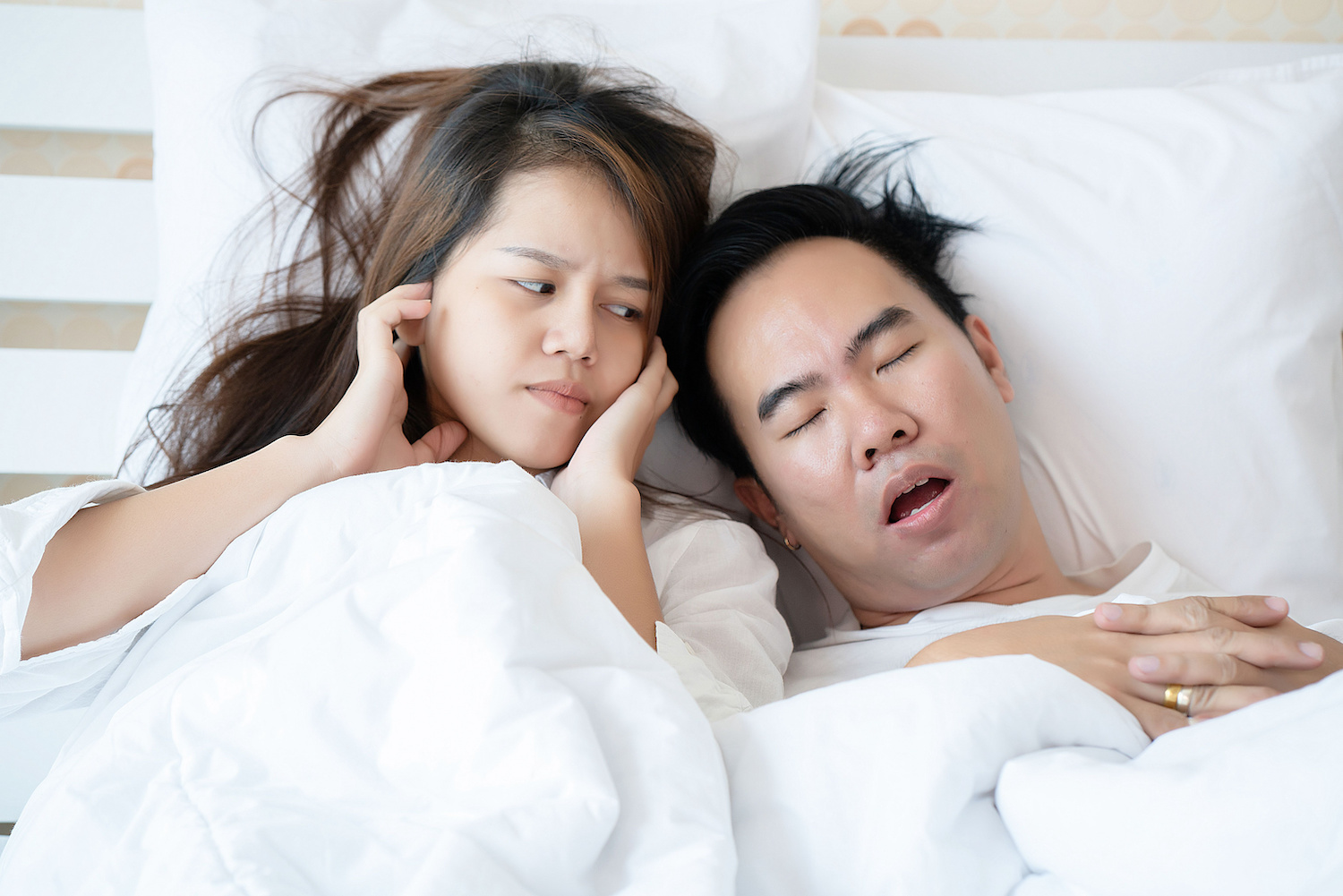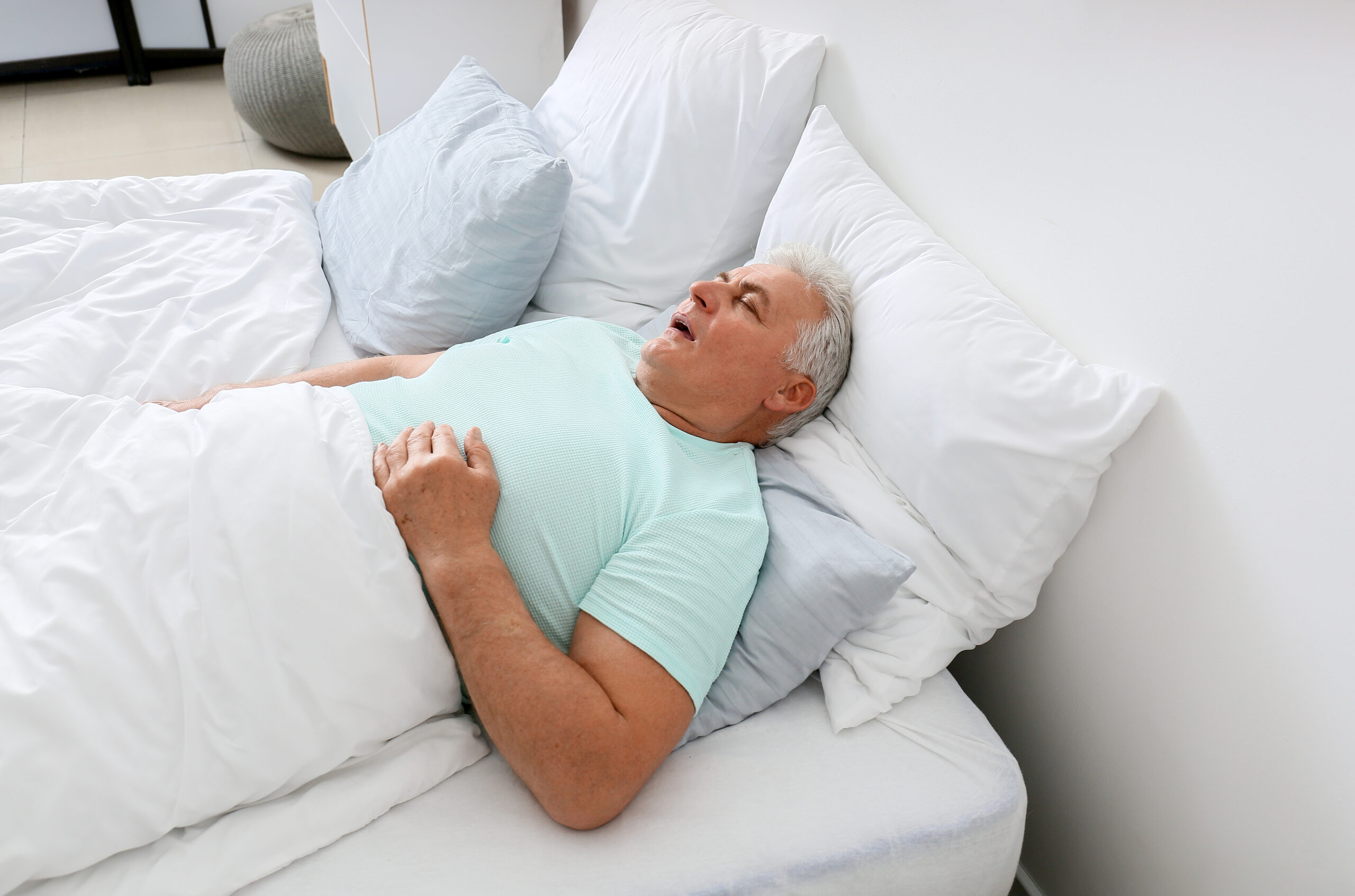Medical Disclaimer: This content is for informational purposes and does not constitute medical advice. Please consult a health care provider prior to starting a new treatment or making changes to your treatment plan.
If you or a loved one has recently been diagnosed with sleep apnea, you may have a lot of questions. In particular, you may be wondering why doctors emphasize the importance of treatment. You may even be curious about what can happen if sleep apnea goes untreated, or if sleep apnea can cause death.
Sleep apnea can cause health problems, and left unaddressed, can contribute to the risk of sudden death. Fortunately, sleep apnea treatment may reduce the risk of many of these complications. Learn about the signs, symptoms, and consequences of untreated sleep apnea so you can be equipped to handle any sleep apnea concerns that come your way.
Our Recommended At-Home Sleep Apnea Test
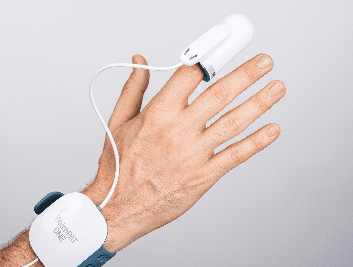
our partner at sleepdoctor.com
Save 45% on your Sleep Test Today
Shop Now“Wish I'd known how easy and affordable getting tested would be. Got my diagnosis fast, and now I'm actually getting decent sleep!”
Dawn G. – Sleep Doctor Customer
Is Sleep Apnea Dangerous?
Untreated sleep apnea is associated with several health conditions, and some of these can become serious enough to lead to death. In people with sleep apnea, breathing is temporarily restricted or stopped during sleep, which can cause the level of oxygen in the blood to go down and the level of carbon dioxide to rise. This usually causes the sleeper to wake up in order to breathe. But these frequent and chronic nighttime breathing disruptions also contribute to the development of health problems. Experts believe that repeated airway obstruction during sleep can contribute to chronic health conditions like diabetes and insulin resistance, changes in blood vessels, stroke, heart failure, abnormal heart rhythms, and even cognitive impairment.
What Are the Risks of Untreated Sleep Apnea?
The risks of untreated sleep apnea depend on the type of sleep apnea diagnosed. Nighttime breathing issues are most often caused by partial or complete collapse of the airway, called obstructive sleep apnea. Breathing issues are less commonly caused by the body’s inability to initiate breathing, which is called central sleep apnea.
Experts believe that untreated obstructive sleep apnea can contribute to or worsen several health issues.
- High blood pressure: Researchers believe that obstructive sleep apnea can worsen high blood pressure. Some reasons behind this include low oxygen levels at night, changes in hormones, and an activated nervous system.
- Diabetes and insulin resistance: People with obstructive sleep apnea are at an increased risk for developing diabetes. This is tied to an increased risk of insulin resistance. Insulin resistance means that the body doesn’t respond normally to insulin, a hormone that helps the body to use blood sugar.
- Pulmonary hypertension: Over time, breathing disruptions can change the structure of the blood vessels in the lungs and contribute to pulmonary hypertension. Pulmonary hypertension is a condition in which blood pressure is too high in the arteries between the heart and lungs.
- Stroke: Untreated obstructive sleep apnea also increases the chances of stroke. This risk may be due to the effects of obstructive sleep apnea on existing risk factors for stroke, like high blood pressure and heart disease, or because of changes in blood pressure to the brain.
- Abnormal heart rhythms: Also known as heart arrhythmias, abnormal heart rhythms can be a result of the low oxygen levels that happen in people with sleep apnea. Experts believe that heart arrhythmias may be one of the main reasons behind sudden death in those with sleep apnea.
Untreated obstructive sleep apnea can also lead to other complications, including problems with concentration and decision making and an increased risk of errors and accidents. Without treatment, sleep apnea can also worsen mood and impair memory.
Can Sleep Apnea Cause Death Suddenly During Sleep?
Obstructive sleep apnea does increase the risk of sudden cardiac death, which describes when a person dies because their heart abruptly stops or isn’t able to support life. Research shows that sudden death is more common in people with obstructive sleep apnea who are also older than age 60, have more severe apnea, or have very low oxygen levels.
Although rare, death can occur because a person’s breathing doesn’t restart after a brief pause due to sleep apnea. More commonly though, researchers believe that sudden cardiac death is linked to shared risk factors between obstructive sleep apnea and sudden cardiac death, like heart disease and high blood pressure, or due to irregular heart rhythms or other factors.
Knowing the signs and symptoms of sleep apnea can help people know when to contact their doctor and get evaluated for this condition. Treatments for obstructive sleep apnea can improve nighttime oxygen levels, lower the risk of chronic disease, and reduce the chances of serious complications.
Signs of Sleep Apnea
The main signs of sleep apnea are disruptions in breathing during sleep. Often, a bed partner is the first to notice abnormal breathing, frequent loud snoring, or gasping for air during the night.
Additional signs and symptoms of obstructive sleep apnea include:
- Waking up gasping for air or choking
- Making unusual sounds while sleeping
- Having frequent daytime fatigue
- Waking up unrefreshed
- Falling asleep during daytime tasks
- Experiencing morning headaches
- Tossing and turning during sleep
- Having mood swings
- Difficulty concentration during the day
- Urinating frequently during the night
The signs and symptoms of central sleep apnea are similar to obstructive sleep apnea symptoms. However, people with central sleep apnea may not report daytime sleepiness as often as those with obstructive sleep apnea.
When to See a Doctor
If you have signs or symptoms of sleep apnea, such as not feeling rested in the morning or having frequent daytime fatigue, then it is important to talk to your doctor about sleep apnea. Prompt treatment for sleep apnea can be an important part of preventing chronic disease and other complications.
To diagnose sleep apnea, your doctor may order a sleep study. Some sleep studies are done at a specialized sleep center in a clinic or hospital, but others – known as home sleep studies – can be done at home using portable equipment.
During a sleep study, a health care provider will monitor brain signals as you sleep. In addition, your provider will monitor for any changes in heart rate or breathing, and the test will record if and when your breathing is restricted.
If the sleep study finds that your breathing is frequently disrupted during the test, you may be diagnosed with sleep apnea. Your doctor may then recommend various treatments to help improve your breathing and reduce the risk of complications.
Treatment Options for Sleep Apnea
Treatments for sleep apnea depend on several factors, such as the severity of your symptoms, the type of sleep apnea that you have, and how well you can tolerate each therapy. There are several treatments available for sleep apnea.
- Behavioral changes: Obstructive sleep apnea is commonly related to higher body weight. Thus, sometimes lowering body weight can help reduce symptoms. In addition, doctors may recommend avoiding alcohol and other sedatives, as these can also worsen the severity of sleep apnea.
- Changes in sleep position: During a sleep study, a health care provider may notice that symptoms worsen when you sleep in a certain position, most often on the back. In these cases, doctors may recommend sleeping on your side to help reduce symptoms.
- Positive pressure airway therapy: Positive pressure airway therapy is a common treatment for sleep apnea. This treatment uses a special mask that directs pressurized air into the airway to keep it open during sleep, improve breathing, and normalize nighttime oxygen levels.
- Oral appliances: Removing obstructions to airflow, like the soft palate or tongue, can be done with special oral devices. Therefore, your doctor may recommend trying one if you have obstructive sleep apnea, especially if you are unable to tolerate other therapies.
- Upper airway surgery: Usually, surgery is reserved for people with obstructive sleep apnea who do not respond to other treatments. There are many types of surgeries that can help people with obstructive sleep apnea, so this is something to keep in mind if other treatments are not working as well as desired.


